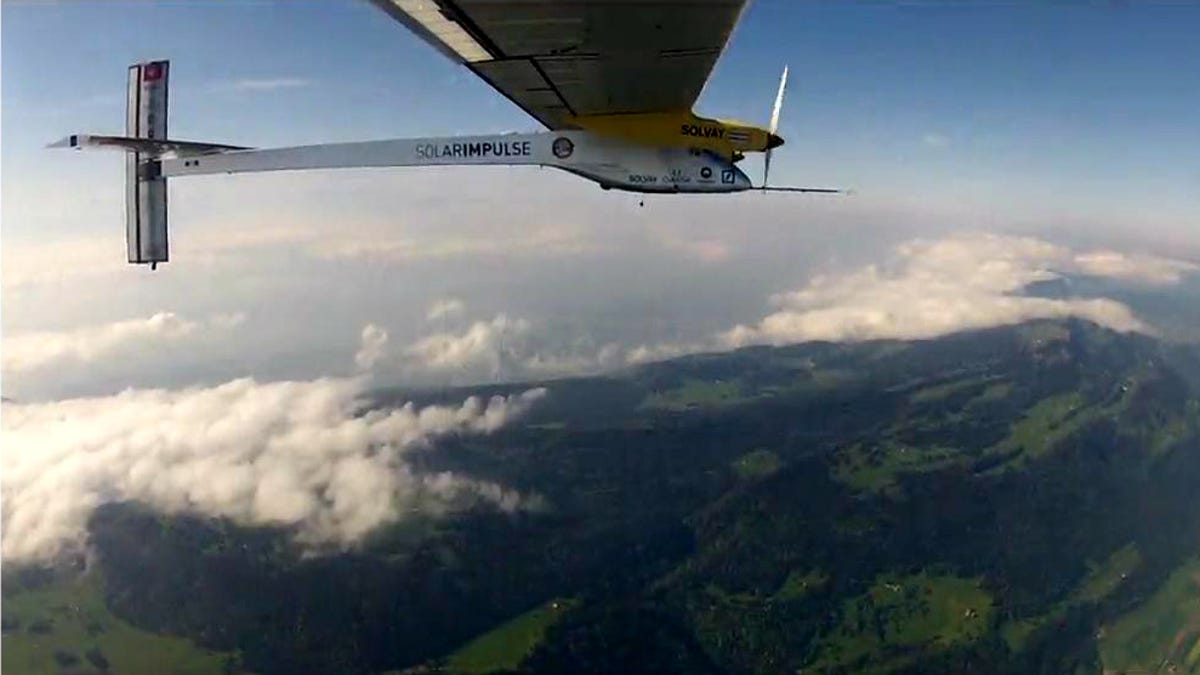Solar plane midway through first intercontinental flight
The Swiss sun-powered aircraft Solar Impulse has completed the first leg of its planned flight from Switzerland to Morocco without using a drop of fuel.

Solar Impulse, a Swiss sun-powered aircraft, on Friday finished the first leg of its attempt at an intercontinental flight without using a single drop of fuel.
The solar plane took off Thursday from Payerne, Switzerland, bound for Morocco. It landed safely Friday on a planned three-day technical stopover in Madrid, where it will get a new pilot.
If successful, the 1,550-mile journey will be the longest to date for the craft, which last year completed its first international flight from its home in Switzerland to Brussels.
Pilot Andre Borschberg handled the first leg of the trip for the Solar Impulse, a slender aircraft that weighs only about as much as a midsize car but that has a wingspan to match that of a jumbo jet. His colleague Bertrand Piccard will take the helm for the second stretch to the Moroccan capital Rabat.
According to the Solar Impulse Web site, Borschberg, made his way out of the cockpit, "smiley and certainly happy to stretch his legs."
"The flight went very well and thanks to the team of meteorologists, everything went according to the plan: it was extraordinary," he said. "It was incredible to fly alongside the barrier of clouds during most of the flight and not need to hesitate to fly above them. This confirms our confidence in the capacity of solar energy even further."
The plane's wingspan measures more than 200 feet, which boosts its aerodynamic efficiency. That long wingspan also houses the more than 12,000 solar panels that soak up the sunlight required to power the Solar Impulse during the day and charge its lithium polymer batteries to keep it aloft at night.
The current trip is intended as a rehearsal in the run-up to the plane's round-the-world flight planned for 2014.
The flight duration for the first leg was 17 hours, 3 minutes, and 50 seconds. The average ground speed was 89 km/h or 55.3 mph.

